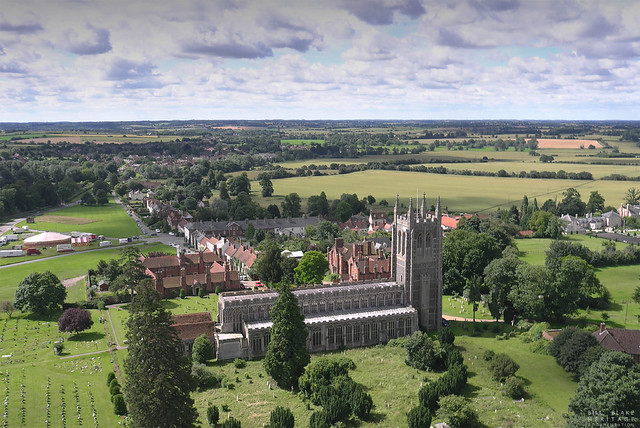Medieval Suffolk grew wealthy off the sheep’s back, leaving a legacy of towns rich in architectural splendour and history
Please note that this information is based on pre-lockdown times so check before visiting to avoid disappointment.
If you've ever wondered how some of Suffolk's small towns came to have such a wealth of timbered buildings and, frankly, oversized churches, the answer is wool.
During the medieval ages, a few Suffolk towns became rich off the sheep's back. Wealthy merchants built fine timber-framed houses and income from the wool industry helped to fund grand churches. The legacy is some of the most attractive towns in the country with fascinating stories to tell.
The Wool Towns are great places to explore whatever the time of year. You can stay in 500-year-old hotels, browse independent shops, visit stately homes and magnificent churches crammed with history. Why not plan a long weekend and visit all five wonderful Wool Towns? wooltowns.co.uk
1) Clare
A small town on the River Stour which forms the Suffolk-Essex border, Clare has independent shops selling everything from books to antiques to delicatessen foods to art and gifts, and a good selection of places to eat and drink.
Visit Clare Castle and Country Park, the Augustinian Priory and the Ancient House Museum.
2) Hadleigh
Astonishingly, this market town has 250 listed buildings including a medieval guildhall, church and deanery.
The thriving high street has lots of independent shops and places to eat, and there are some lovely walks along the River Brett and surrounding countryside.
3) Lavenham
One of the country's best preserved medieval wool towns, Lavenham's streets are lined with timber framed buildings that give it unique character.
There are merchants' houses, a fine guildhall, Little Hall, The Swan Hotel, the Priory and many more, as well as the magnificent church.
4) Long Melford
Famous for its exceptionally long high street, Long Melford is a lovely place to while away some time, browsing shops and galleries, enjoying lunch or afternoon tea in one of the teashops, pubs or cafes, and visiting not one, but two magnificent Tudor mansions.
Melford Hall, in the care of the National Trust, is the 16th century ancestral seat of the Parker Baronets. Kentwell Hall has been a beautiful family home for more than 500 years and now hosts Tudor recreations, historic events and open farm days.
5) Sudbury
Sudbury is a lovely market town surrounded by beautiful countryside, the River Stour and the famous water meadows, which have been continuously grazed since medieval times.
Sudbury is celebrated as the birthplace and home of the painter Thomas Gainsborough and his house is now a museum of his life and art. The town is also known for its silk weaving industry, which is celebrated in a festival every September.
__________

































